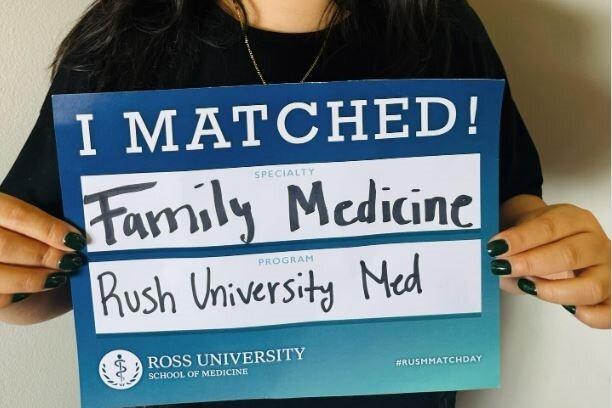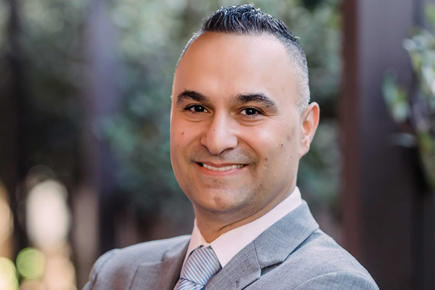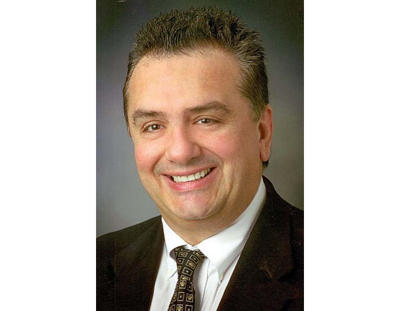But then she started her psychiatry rotation at St. John’s Episcopal Hospital in Queens, NY, and she didn’t see much of that at all. No gifts, no teddy bears, no visitors. Some patients in psychiatric care had outlived their relatives, and had no one to come visit them. Others may have shown aggressive or hostile behavior, causing trauma to the family system and driving loved ones away.
“I started to realize how lonely these patients were, how they needed time and attention, and how this system just wasn’t easy for them,” said Kothari, a 2000 Ross graduate.
Originally, Kothari had been considering pediatrics. But she’d found a new passion.
On Developing Her Own Practice
Kothari’s experience isn’t unusual—many medical school students figure out what they want to do during their clinical rotations. Her mind was set: after wrapping up her clinical rotations, Kothari completed an adult psychiatry residency at University of Maryland/Sheppard Pratt Hospital, followed by a fellowship at Johns Hopkins Hospital in child adolescent psychiatry.
Then she was off to work, and that part was a little unusual. Typically, most medical school graduates in her specialty start off by joining a hospital group, but Kothari’s husband was starting his own fellowship in Florida, so the two moved there from Baltimore. After the move, Kothari immediately started establishing herself.
“I came straight out of my fellowship into a solo practice, and I found my groove quickly,” she said. That’s in part because there’s what she called a “tremendous need” for child psychiatrists—but in the end, it was her own hard work that got her established as a practicing psychiatrist. She networked. She handed out business cards. She marketed herself. And she put in a concerted effort not to just be a doctor in Florida, but a doctor who is serving Florida.
“I walked around, handed out my business cards, kept marketing and kept moving, but I always made an effort to be connected to the community I worked in,” she said. “I did a lot of work with OCD groups, Tourette’s groups, and others—I spoke, I advocated, and somehow through all of that, I developed a practice.”
If It Weren’t for Ross…
She believes establishing her own practice was really all about being assertive, being able to handle herself independently without training wheels. Ross helped her become that person, she said.
“I would not have the confidence to start a practice of my own, make judgment calls and decisions on my feet, learn how to sign myself up for different insurance programs, or do all of my administrative work on my own if it weren’t for Ross,” she said.
Ross was a good fit—for her, the campus environment was conducive to learning, and she had the support of both institutional faculty and her fellow students.
“It built my confidence—it’s a beautiful learning environment, and there aren’t a ton of distractors,” she said. I had wonderful friends, good faculty, and it was a healthy environment for me to study and focus.”
Now, she’s giving back to her alma mater. Kothari mentors third-year Ross students during clinicals and is helping a fourth-year student explore possibilities for residency.
“I think that’s part of your duty as a Ross grad,” she said.
Kothari treats adults and children in Boca Raton. Learn more about Kothari and her practice at http://www.drpritikothari.com.



